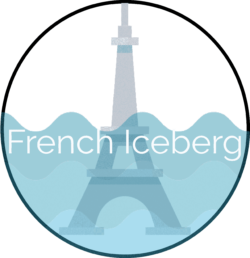Sport has always played a key role in French society. Like gastronomy and art, sport is an integral part of the country’s cultural heritage. Soccer is important in France, as are many other popular sports in France.
France is also a major player in world sport, both institutionally and commercially. So it’s only logical that a number of French sporting brands have emerged in the Hexagone and spread around the world.
Team sports, individual sports, board sports… France boasts some of the world’s biggest sports brands.
Whether you want to contribute to the growth of French sport or are simply looking for information about these brands, here are 12 French sporting brands that are making waves around the globe.
List of French Sporting Brands
- Le Coq Sportif
Headquarters: Romilly-sur-Seine, France
Production locations: France, Portugal, Morocco
Founded in 1882 by Émile Camuset (a renowned French designer in the 19th century), Le Coq Sportif is one of the oldest French sporting
brands still in business today.

Halfway between sport and fashion, the French outfitter offers a wide range of clothing, accessories, sports shoes, and premium French sneakers. Renowned for the finish and value for money of its products, the brand is more than ever one of the flagships of French sport around the world.
Le Coq Sportif is also well known for its involvement in top-level sports. In the 1970s and 1980s, it sponsored numerous soccer teams in France, such as the AS Saint-Étienne, and in England, including Tottenham, Chelsea, Everton and Aston Villa. Today, the company is still at the forefront of the sport, particularly in cycling and the Olympics. It is the official jersey supplier for the Tour de France, the French team for the 2024 Olympic Games, and the French rugby team.
- Lacoste
Headquarters: Paris, France
Production locations: France, Romania, Tunisia, Morocco, Peru, El Salvador, China
Launched in 1933 by André Gillier (entrepreneur) and René Lacoste (former tennis player), Lacoste is undoubtedly one of France’s most emblematic sports brands.

Today, the company markets a wide range of products, from clothing to shoes and perfumes, but one item in particular has contributed greatly to the brand’s success: the Lacoste polo shirt. It was René Lacoste himself who invented and popularized the polo shirt as we know it today.
Formerly known as La Chemise Lacoste, the crocodile brand hasn’t strayed too far from what made it a success, since it has been the official sponsor of the French Open Grand Slam tournament since 1981, and continues to sponsor top tennis players such as Novak Djokovic, Daniil Medvedev, Grigor Dimitrov, and Arthur Fils.
- Salomon
Headquarters: Annecy, France
Production locations: France, Asia
Salomon is a French sporting brand from Savoie (French Alps) specializing in high-altitude sports equipment, founded in 1947.
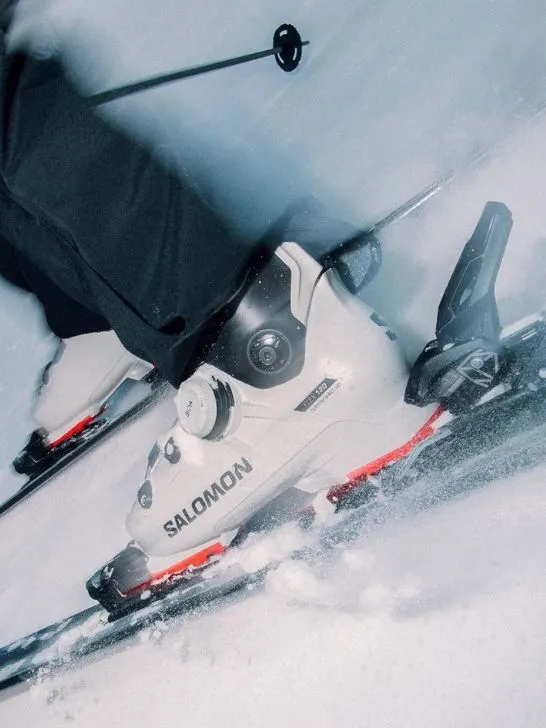
As you’d expect, the brand’s flagship products have long been skis, ski boots, and bindings. But over the last few decades, the brand has greatly diversified, now offering a wider catalog of outdoor products ranging from t-shirts to jogging suits, shorts, and backpacks.
Salomon has recently turned its attention to athletics and trail running in particular, offering a wide range of running shoes and performance apparel.
- Rossignol
Headquarters: Saint-Jean de Moirans, France
Production locations: France, Spain
With its premises at the foot of Mont Blanc and its tricolor rooster as a badge, Rossignol is another French sporting brand that proudly bears the colors of the Hexagone in the world of mountain sports.

Founded by Abel Rossignol in 1907, the company is, like Salomon, a true emblem of French skiing, always putting innovation and performance at the heart of its concerns. Rossignol has always made it a point of honor to equip the greatest alpine ski athletes, generation after generation.
Salomon’s long-standing enemy, the brand also offers a wide range of ski and snowboard equipment, as well as more traditional sportswear. In recent years, it has also diversified into mountain biking, offering enduro, cross-country, and e-bikes.
- Picture
Headquarters: Cebazat, France
Production locations: Turkey, China
Picture, also known as Picture Organic Clothing, is a French eco-responsible sports brand founded in 2008 by three winter sports enthusiasts from Auvergne (Central France).
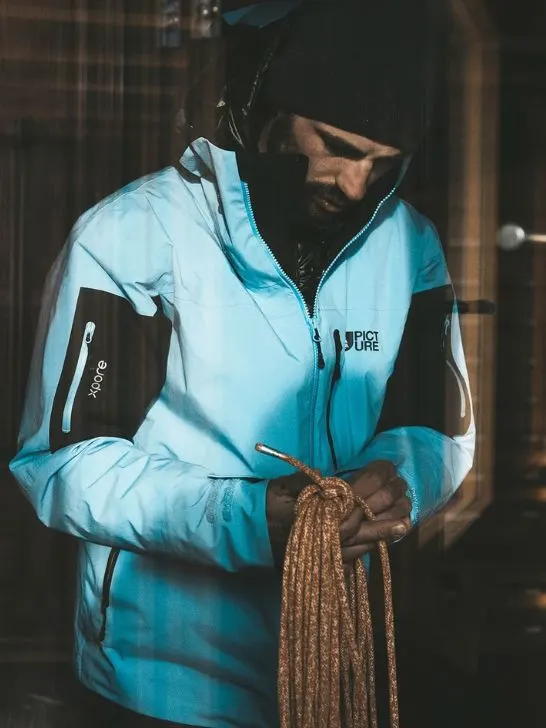
Specializing in mountain clothing, the brand offers three main ranges: ski, hiking, and lifestyle. Picture is also a brand driven by its values. It puts ecology, quality, and transparency at the heart of its concerns.
Like its principles, Picture clothing is simple and elegant, without neglecting the latest technologies to offer the best possible performance to its riders.
- Decathlon
Headquarters: Villeneuve-d’Ascq, France
Production locations: Europe, South America, North Africa, Asia
With over 2,000 stores in 57 countries, it would have been impossible to list the top French sporting brands without mentioning Decathlon. Founded in 1976 by Michel Leclercq, the French sports and leisure equipment giant has always been committed to making sport accessible to all.

Just as its slogan “À fond la forme” (literal translation “full in shape”) suggests, the mass retailer covers virtually all sports with its sports equipment and clothing: team sports (soccer, basketball, volleyball, handball, rugby), racquet sports (tennis, badminton, table tennis, squash, padel), board sports (skiing, snowboarding, surfing, skateboarding, rollerblading, scootering), outdoor sports (hiking, climbing, trail running, camping), combat sports (boxing, judo, karate, taekwondo), fitness (weight training, cardio-training), running, dance, yoga, horse riding, fishing… The list goes on!
In 2023, the brand made a 180-degree turn by discontinuing many of its flagship brands, such as Artengo (tennis) and Tarmak (basketball), to focus on digital and sustainable development.
- Babolat
Headquarters: Lyon, France
Production locations: France, Asia
Founded in 1875 by Pierre Babolat, Babolat is a French brand specializing in the manufacture of sporting goods and rackets.

Launched just one year after the official invention of tennis, the brand concentrated for almost a century on the manufacture of tennis racket screens, before diversifying in the late 1990s into the complete manufacture of tennis and badminton rackets. In the 2000s, Babolat continued to diversify into sportswear and footwear.
Still firmly established in the world of tennis, the brand has equipped and continues to equip some of the world’s greatest players, including Jo-Wilfried Tsonga, Rafael Nadal, Fabio Fognini, and Sophia Kenin.
- Hopaal
Headquarters: Biarritz, France
Production locations: France, Portugal
Launched in 2017 by two mountain and ocean enthusiasts, Hopaal is a minimalist, eco-responsible French outdoor brand on a mission to transform the codes of the textile industry.
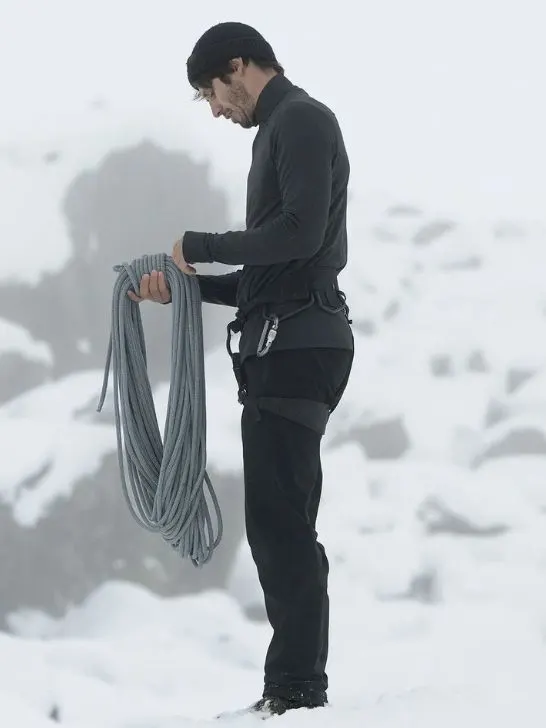
As we mentioned in our article dedicated to French gift ideas, Hopaal makes a point of leaving the smallest possible ecological footprint through the use of recycled materials and local natural fibers. It has also chosen to produce as locally as possible, with the forthcoming opening of a manufacturing workshop in France.
The brand offers a collection of cold-weather clothing, as well as a collection of running and trail clothing.
- K-Way
Headquarters: Turin, Italy
Production locations: Portugal, North Africa
Launched in 1965 in northern France by Léon-Claude Duhamel, K-Way has become a veritable emblem of waterproof clothing worldwide. So much so, in fact, that its name has become a household word for raincoats in France and around the world.

Bought by an Italian company in 2004, the brand underwent a rebranding that turned its flagship product into a genuine fashion item, while at the same time, numerous other products were launched.
Today, the brand has truly moved upmarket, offering a bevy of premium garments (parkas, jackets, polo shirts, t-shirts, sweatshirts, pants) and sportswear (ski jackets and pants, swimwear).
- Millet
Headquarters: Annecy, France
Production locations: Hungary, Tunisia, Asia
Founded in 1921 by three brothers and sisters, Millet is a French sporting brand specializing in the manufacture of clothing, backpacks, sleeping bags, footwear, and mountaineering ropes.
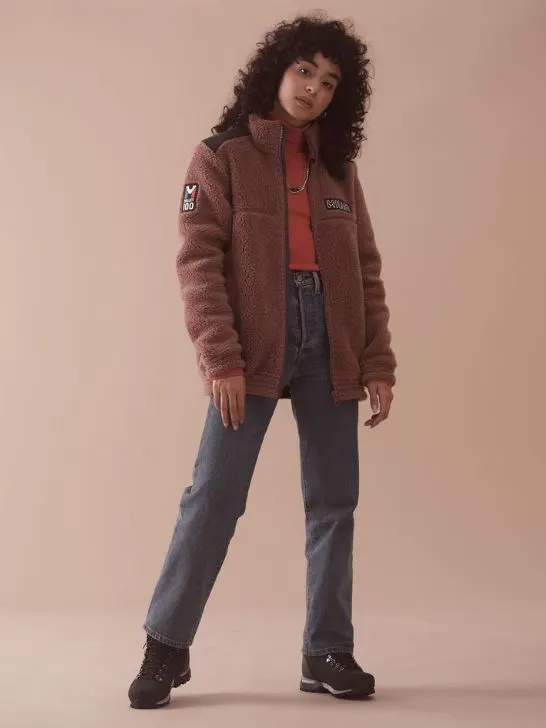
Praised for the quality and performance of its products, the brand has established itself as a benchmark in hiking and mountaineering gear. Whether for the durability of its garments or the ergonomics of its packs, many mountaineering professionals today place their trust in the brand.
Millet also sponsors many of the top French and international athletes in climbing, trail running, skiing, and mountaineering.
- Aigle
Headquarters: Paris, France
Production locations: France, Vietnam, Taiwan, China
Founded in 1853 by Hiram Hutchinson, Aigle is a French brand of boots, shoes, and ready-to-wear clothing. Originally specialized in the manufacture of waterproof boots and clothing, the brand has gradually diversified to offer a vast catalog of products.

With almost two centuries of know-how, the brand now offers not only boots and raincoats but also clothing, sneakers and sneakers.
A pioneer in sustainable fashion, Aigle has always placed ecology and sustainable development at the heart of its concerns. Each year, the brand shares its financial performance and ecological impact transparently through comprehensive reports.
- Soöruz
Headquarters: La Rochelle, France
Production locations: France
We mentioned above a number of French sporting brands specializing in high mountain sports, but the French also have a particular affinity for the sea and the ocean.

Launched in 1999, Soöruz is France’s standard-bearer in water sports. The brand specializes in the design of wetsuits for surfing, kite surfing, and windsurfing.
Socially and ecologically committed, Soöruz markets eco-designed neoprene wetsuits with the Ocean Protect label.
Conclusion
The growing influence of French sporting brands on the international stage bears witness not only to the excellence of the French sports industry but also to the ingenuity and innovation of these companies.
Whether through their commitment to sustainable development, their collaboration with world-renowned athletes, or their ability to combine style and performance, there is no doubt that French brands have an identity all their own.
Translated into English by Sacha
